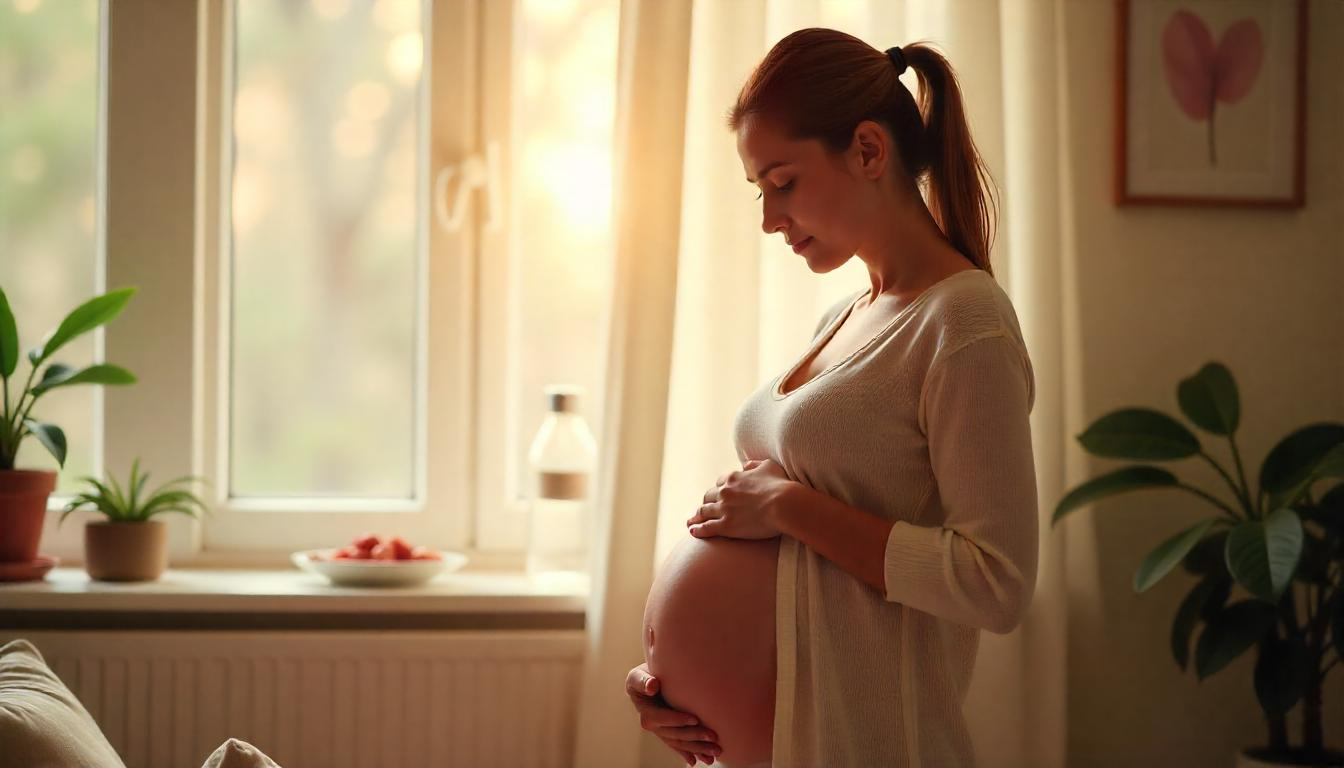Pregnancy is already a full-on emotional and physical rollercoaster — and when dizziness in pregnancy kicks in, it can feel like the ride just got bumpier.
Feeling faint, lightheaded, or unusually tired? You’re not alone, mama! Let’s explore what causes dizziness in pregnancy, how it’s linked to low blood pressure, and some easy tips to help you stay steady and feel in control.
Why Does Low Blood Pressure Happen During Pregnancy and Cause Dizziness?
Your body becomes an extremely effective machine for producing a baby during pregnancy. Your blood arteries enlarge to accommodate your developing fetus, and hormonal shifts, such as elevated progesterone, lower blood pressure, particularly in the first and second trimesters.
These changes are a significant reason why dizziness is so common during pregnancy. As your circulatory system adjusts, less blood may reach your brain temporarily, causing lightheadedness or even fainting spells. For many women, dizziness in pregnancy can be mild and occasional, but for others, it may interfere with daily comfort and safety.
Want to dive deeper into this? Read Low Blood Pressure During Pregnancy for full medical and lifestyle insight.
Common Symptoms of Low Blood Pressure and Dizziness in Pregnancy
You might be dealing with low BP if you experience:
- Dizziness or lightheadedness (especially when standing suddenly)
- Extreme fatigue
- Fainting spells or blurred vision
- Cold sweats
- Brain fog or feeling unusually slow
- Some women call it their “zombie mode” — and honestly, that’s not far off. 😴
Should You Be Worried About Dizziness in Pregnancy?
In most cases, low blood pressure during pregnancy is normal. However, it’s important to be cautious. Seek medical help immediately if you experience:
- Regular fainting
- Chest pain or rapid heartbeat
- Reduced baby movement
- Confusion or severe headaches
How to Manage Low BP (Without Losing Your Cool)
Here are some practical, pregnancy-safe ways to handle low blood pressure:
1. Stay Hydrated to Prevent Dizziness in Pregnancy
Drink plenty of water, coconut water, or homemade lemon juice. Dehydration can worsen hypotension.
Check out: Managing Low Blood Pressure for a full lifestyle guide!
2. Salt Helps — But in Balance to Manage Dizziness in Pregnancy
A slight increase in sodium intake can help boost blood pressure, but consult your doctor first.
3. Eat Small but Frequent Meals to Combat Dizziness in Pregnancy
Avoid long gaps between meals. Eating 4-5 small meals a day helps keep your blood sugar and pressure stable. Need inspiration? Try these exercise-friendly meals for low blood pressure to stay energized without feeling weighed down.
4. Avoid Standing Up Too Quickly to Prevent Dizziness in Pregnancy
Sudden movements can cause dizziness or fainting. Move slowly from lying to sitting, then standing.
5. Compression Socks = Circulation Boost to Reduce Dizziness in Pregnancy
They help reduce swelling and support blood flow — plus, they’re surprisingly stylish these days!
Safe Pregnancy Exercises That Help
While intense workouts aren’t the goal, gentle movement can stimulate circulation and help your BP stabilize.
Explore low blood pressure exercises for women to find safe routines tailored for pregnancy.
😄 Real Talk: A Funny But Relatable Story
One expecting mom shared:
“My BP was so low, I went to the fridge for lemon water and grabbed the TV remote instead. Classic pregnant brain + low BP combo!”
Bonus Tip: Rest Without Guilt
If your body is screaming “nap now,” please listen. Low BP is a sign your body needs more care — give it freely.
📚 Want More Reliable Info?
For medically reviewed details on low BP during pregnancy, visit Mayo Clinic’s resource on low blood pressure — a great source for health-backed facts.
Frequently Asked Questions (FAQs)
1. Can low blood pressure affect my baby?
Generally speaking, a baby is not harmed by mild low blood pressure. It may, however, lessen blood flow to your organs and the placenta if it falls sharply and is left untreated, which could have an impact on the development of your unborn child. Consult your healthcare provider at all times.
2. When should I worry about low BP during pregnancy?
Seek immediate medical help if you experience:
- Fainting frequently
- Blurred vision
- Confusion
- Shortness of breath
These could indicate dangerously low blood pressure or other complications.
3. Can I exercise if I have low BP during pregnancy?
Yes, but pick easy, pregnancy-safe activities like stretching, yoga, and strolling. Steer clear of exercises that call for abrupt standing or shifting positions.
4. What foods can naturally raise my blood pressure?
Include foods like:
- Salty crackers
- Broths or soups
- Whole grains
- Leafy greens
- Iron-rich fruits like pomegranate or dates
Also, eat small, frequent meals and avoid skipping breakfast.
📝 Pregnancy Low Blood Pressure Checklist
- Drink at least 8-10 glasses of water a day
- Eat small, balanced meals every 3–4 hours
- Avoid hot showers or standing for too long
- Get up slowly from bed or a seated position
- Wear compression socks if advised by your doctor
- Practice deep breathing or prenatal yoga
- Track your symptoms in a pregnancy journal
- Consult your doctor if symptoms persist or worsen
Final Thoughts
Low blood pressure during pregnancy is common, manageable, and nothing to panic about — especially when you’re equipped with the right knowledge. Take care of your hydration, rest well, and don’t skip those snacks!
Pregnancy isn’t easy, but you’re doing an amazing job. Keep glowing, mama.
Related Reads from FitFusion Blogs:
Dangerous Low Blood Pressure in Women
Managing Low Blood Pressure Naturally
Low Blood Pressure Exercises for Women

